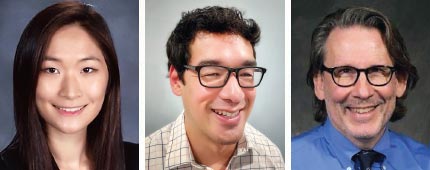Addressing Stress and Burnout: Faculty and Trainees Connect With Creativity
Abstract
A psychiatry resident at the University of Rochester spearheads a program showcasing the creative talents of trainees and faculty as a way to promote wellness.
As the summer comes to an end, resident physicians may be reflecting on the past year and recalling the stress and uncertainty of applying for training positions in the midst of an unprecedented global pandemic. Now many of us are finding that residency itself is just as stressful as we adjust to being physicians, dealing with long hours, inadequate resources, and restrictive administrative policies. Feelings of isolation may additionally perpetuate a sense of helplessness, further compounding our stress.
To combat burnout among residents, there are increasing efforts to explore alternative methods to promote wellness and tap into the creative reserve that exists in many who pursue a career in medicine. Doing so is crucial to caring for patients: burnout and feelings of stress could certainly permeate our interactions with patients, potentially negatively affecting the quality of care provided, according to an article in the June 2020 issue of Advanced Critical Care by Katherine Reed, M.A., et al.

Above is a flyer for the “Creatively Connecting: Spring Showcase” designed by Amanda Lai, B.A.
As one way to support residents, the Psychiatry Department at the University of Rochester Medical Center (URMC) hosted the first of an ongoing creative arts series this past spring called “Creatively Connecting.” This series was spearheaded by one of the authors of this article—Grace Ro, M.D.—whose interest in the intersection between physician wellness and creative arts is rooted in her background in classical violin performance. Her efforts to utilize the arts to promote connectedness among the residents, the Psychiatry Department, and the local community were met with unwavering support from another author of this article—Mark W. Nickels, M.D., and the chair of the Psychiatry Department, Hochang Benjamin Lee, M.D.
This musical showcase featured performances by members of the Psychiatry Department at URMC. Attending psychiatrists, residents, social workers, and advanced practice providers shared their musical talents on a virtual platform. Utilizing the YouTube live premiere feature, viewers could interact with their peers and colleagues in real time via a live chat while enjoying music performed by familiar faces.
To further promote a sense of connectedness with the community we serve at Strong Memorial Hospital, the Psychiatry Department provided funding to purchase gift vouchers from a locally owned smoothie shop. The business owner, also a poet and inspirational speaker, shared his poetry as one of the “Creatively Connecting” performances.
To study whether such events could have a tangible effect on well-being, Dr. Ro and her co-resident Dr. Monte sent out pre- and post-surveys using a modified version of the widely used Perceived Stress Scale (PSS) to the department trainees who watched the virtual showcase. The results revealed a decrease in stress levels and feelings of workplace isolation, and an increased sense of connectedness with one another.
Measuring changes in resident wellness is an ongoing challenge given the subjective nature of the data. Also, the types of events or modalities that may resonate with one resident may be different from another. Despite these limitations, residency programs can start by incorporating protected time for wellness activities and interventions. Based on residents’ specific preferences, this time can be tailored to effectively promote their wellness and mental health.
It is no secret that a career in medicine is challenging and formative. However, as many of us would say to our own patients, we must first take care of ourselves to best take care of others. ■




